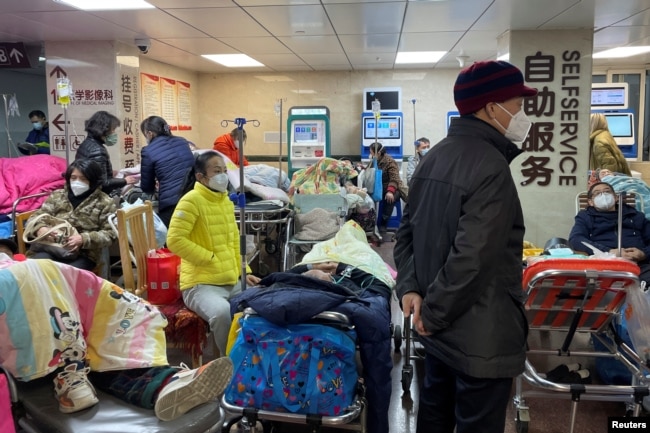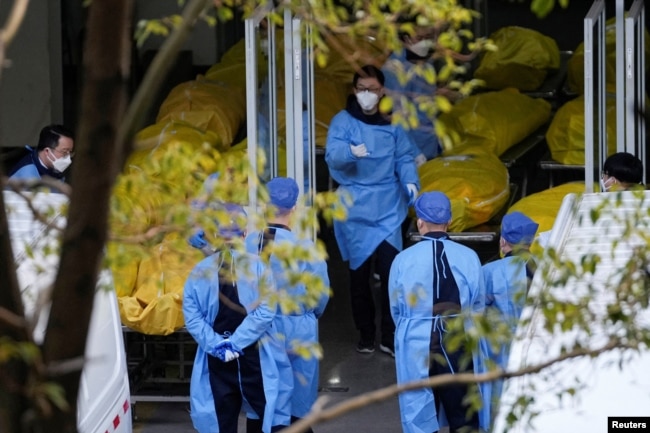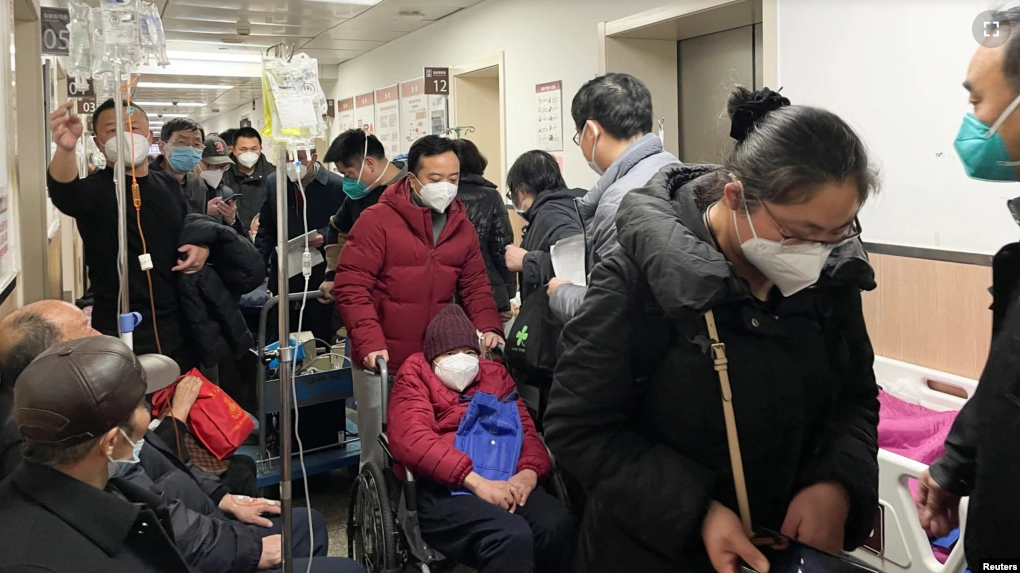The World Health Organization (WHO) said on Wednesday that data from China showed no new coronavirus variant. But it also under-represented how many people have died in the country.
The data was provided by the Chinese Center for Disease Control and Prevention (CDC). And the United Nations agency released the information a day after its meeting with Chinese scientists.
Many nations are concerned about the accuracy of China’s reporting. Since the country stopped enforcing its “zero COVID” policy, there were reports of an outbreak that has filled hospitals and death service centers.
Mike Ryan is the WHO’s emergency director. He told reporters that current numbers being published from China under-represented the numbers of people in hospitals, and “particularly in terms of death.”
WHO Director General Tedros Adhanom Ghebreyesus said the agency was seeking more regular and current data from China on hospitalizations and deaths. And he added, “WHO is concerned about the risk to life in China…”
On Thursday, China defended its handling of the outbreak saying the “situation is controllable.” A spokesman for the foreign ministry told reporters that China hoped the WHO would be “scientific, objective, and impartial.”

Hospitals overwhelmed
The quick removal of China’s “zero COVID” policies last month brought the virus into contact with China’s 1.4 billion people. Many in China have little immunity after having no contact with the virus over the last three years.
China’s CDC research showed that Omicron sub-variants BA.5.2 and BF.7 are among the infections found in China. That confirms what other scientists had already said and will ease worldwide concerns about a new variant appearing.
International health experts predict at least 1 million COVID-related deaths in China this year. And many Chinese death centers, or funeral homes, and hospitals say they are overwhelmed.
But China has reported only five or fewer deaths a day since it removed its “zero-COVID” policies. By Tuesday, the official death count was 5,258, very low by world measures.
“That is totally ridiculous,” said 66-year-old Zhang about the official reports. He is a Beijing local who only gave his last name.
He added, “Four of my close relatives died. That’s only from one family. I hope the government will be honest with the people and the rest of the world about what’s really happened here.”
In Shanghai, Zhongshan hospital was full of patients on Tuesday who were lying on what they could make as beds to receive medical care. A witness told Reuters there were seven vehicles that moved the dead outside of Tongji, another Shanghai hospital on Wednesday. Workers were seen carrying at least 18 yellow bags used to move bodies.

Increased measures
Health officials in other nations have been struggling to work out the size of the outbreak in China and how to stop it from spreading.
More countries have introduced measures such as COVID tests before flights for arrivals from China. Japan, the United States, Australia, and several European nations are among the countries requiring such tests.
But the Chinese government has criticized such moves, saying the rules were unreasonable and lack a scientific basis. China also said Wednesday it would increase medicine availability and meet demand from medical centers and rural areas.
China will also stop requiring arriving travelers to quarantine from January 8, but they must be tested before arrival.
I’m Gregory Stachel.
Alessandro Diviggiano and Bernard Orr reported this story for Reuters. Gregory Stachel adapted it for VOA Learning English.
_______________________________________________________________
Words in This Story
variant – n. a version of something that is different in a small but meaningful way
accuracy – n. the ability to work or perform without making mistakes
outbreak – n. a sudden start or increase of fighting or disease
particular – adj. used to indicate that one specific person or thing is being referred to and no others
immunity – n. bodily power to resist an infectious disease
overwhelmed – adj. strongly affected
ridiculous – adj. not serious; unreasonable
quarantine – n. the condition of being kept apart from others to prevent the spread of disease
